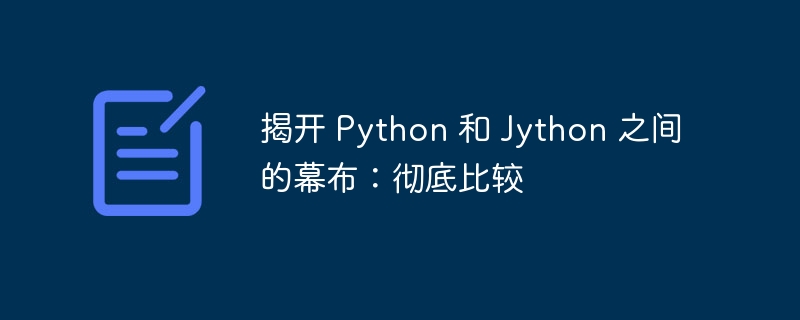

#python is a popular high-level general-purpose programming language known for its concise syntax, rich features, and extensive libraries. Jython is a Java implementation of Python designed to run Python code on the Java Virtual Machine (JVM).
compatibility
Jython is fully compatible with Python 2.7, which means it supports all syntax, libraries and modules of Python 2.7. However, Jython does not support some features of Python 3, such as asynchronous generators and annotations.
performance
Jython's performance is generally slower than CPython (Python's official interpreter) because it is interpreted rather than compiled directly. However, there are situations where Jython may perform better than CPython, such as when the application requires frequent interaction. The JVM's JIT (just-in-time) compiler can optimize code and increase execution speed.
integrated
Jython can be easily integrated into Java applications, allowing access to Java libraries and classes. This makes developing Python applications in a Java environment much easier. Additionally, Jython can interoperate with other JVM languages such as Groovy and Scala.
Advantage
Disadvantages
Example
Jython is particularly suitable for applications that require Java integration or cross-platform support. Some common use cases include:
in conclusion
Python and Jython are programming languages designed for different purposes. Python offers rapid development and extensive libraries, while Jython offers tight integration with Java and cross-platform support. Ultimately, which language to choose depends on the needs and preferences of your specific application.
The above is the detailed content of Peeling Back the Curtain Between Python and Jython: A Thorough Comparison. For more information, please follow other related articles on the PHP Chinese website!




